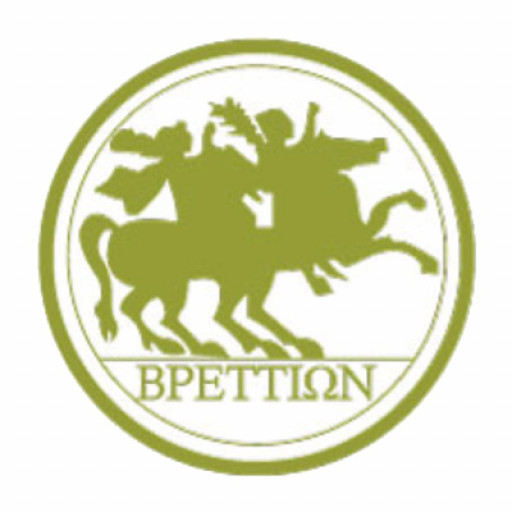Minimising Risks in the Use of 1080 and PAPP Bait Products for Vertebrate Pest Control is a specialized training program designed to equip pest control professionals, environmental managers, and agricultural practitioners with the essential knowledge and skills to safely and effectively utilize 1080 (sodium fluoroacetate) and PAPP (paranthion phenylphosphonic acid) bait products. This comprehensive course covers the principles of vertebrate pest management, emphasizing the importance of hazard identification, risk assessment, and the implementation of best practices to minimize potential environmental and human health impacts associated with using these potent baits. Participants will learn about the chemical properties, handling procedures, storage requirements, and disposal methods for 1080 and PAPP baits, ensuring compliance with national regulations and safety standards. The program also addresses strategies for selecting appropriate bait formulations and applying them responsibly within various ecological contexts, including conservation reserves, farmland, and urban interfaces. Additionally, the course highlights the significance of public awareness and community engagement in pest management activities involving toxic baits. Practical modules include case studies, risk mitigation techniques, and emergency response planning to prepare participants for real-world scenarios. By the end of the training, attendees will have developed a thorough understanding of how to assess potential risks, implement control measures with minimal environmental impact, and contribute to sustainable pest management efforts. The program is ideal for professionals seeking to enhance their expertise in eco-friendly pest control methods, regulatory compliance, and the safe use of baits for vertebrate pest suppression to support biodiversity conservation, agricultural productivity, and public safety.
The "Minimising Risks in the Use of 1080 and PAPP Bait Products for Vertebrate Pest Control" program offered by the Gordon Geelong Institute of TAFE provides comprehensive training aimed at ensuring safe and effective application of toxic bait products used in vertebrate pest management. This course covers the principles of pest control, emphasizing the importance of minimizing environmental and human health risks associated with the use of 1080 (sodium fluoroacetate) and PAPP (pauxin plant growth regulator) bait products. Participants will gain in-depth knowledge of the chemical properties of these substances, appropriate handling, storage procedures, and disposal methods to prevent accidental exposure and environmental contamination. The program also explores risk assessment strategies, including understanding pest species behavior and habitat, to optimize bait deployment techniques while maintaining safety protocols. Participants will learn about strict regulatory guidelines and legal requirements governing the use of these toxicants, ensuring compliance with environmental and health standards. Practical workshop sessions are incorporated to demonstrate safe application techniques, equipment calibration, and the use of personal protective equipment. The course emphasizes the importance of integrated pest management strategies and environmentally sustainable practices to reduce reliance on chemicals while effectively controlling pest populations. Through theory, practical exercises, and case studies, participants will develop the skills necessary to implement pest control programs responsibly and ethically. The program aims to prepare pest management professionals, landholders, and environmental workers to make informed decisions when using 1080 and PAPP baits, fostering community safety, biodiversity conservation, and sustainable land use. Overall, this training ensures participants are equipped with the knowledge and skills to minimise risks associated with the use of these potent pest control tools, promoting safe, effective, and environmentally conscious pest management practices.
The program "Minimising Risks in the Use of 1080 and PAPP Bait Products for Vertebrate Pest Control" offered by the Gordon Geelong Institute of TAFE is designed to equip students with comprehensive knowledge and practical skills necessary to manage the safe application of toxic baits containing 1080 (sodium fluoroacetate) and PAPP (para-aminopropiophenone). The course aims to promote best practices in pest control while minimizing environmental and human health risks associated with these substances. Participants will learn about the chemical properties, toxicity, and environmental behavior of these pest control agents, along with regulatory requirements governing their use. The program emphasizes understanding the ecological impacts and implementing risk mitigation strategies effectively. It covers procedures for proper handling, storage, and disposal of bait products, emphasizing safety protocols to prevent accidental exposure and contamination. Students will engage in risk assessment methodologies, develop safety management plans, and learn emergency response procedures in case of accidental releases or incidents. The training includes case studies and practical exercises to enhance understanding of real-world scenarios, ensuring participants are prepared to apply safe pest control practices responsibly. The program also discusses alternative pest management options and integrated pest management (IPM) strategies to reduce reliance on chemical toxicants. To complete this program, students typically need to have a basic understanding of environmental science and pest management principles. Successful participants will receive certification valid for use of these pest control methods within regulated environments, adhering to national and local safety standards. This course is suitable for environmental officers, pest management professionals, and wildlife conservation personnel seeking specialised knowledge in the safe application of 1080 and PAPP bait products. Continuing professional development units may be available, supporting ongoing education and compliance with industry standards. Overall, the program aims to foster responsible pest management practices, ensuring ecological integrity and human health protection through rigorous risk minimisation techniques among professionals handling 1080 and PAPP bait products.
Want to improve your English level for admission?
Prepare for the program requirements with English Online by the British Council.
- ✔️ Flexible study schedule
- ✔️ Experienced teachers
- ✔️ Certificate upon completion
📘 Recommended for students with an IELTS level of 6.0 or below.
Funding options for the program "Minimising Risks in the Use of 1080 and PAPP Bait Products for Vertebrate Pest Control" at Gordon Geelong Institute of TAFE include a variety of financial assistance opportunities designed to support students in their educational pursuits. Students may explore government-funded schemes such as vocational education grants, which often cover part or all of the tuition fees for eligible individuals. Additionally, the institute offers scholarships aimed at students pursuing courses in environmental management, pest control, and related fields, which can significantly reduce the financial burden associated with completing the program.
Furthermore, students enrolled in the program might qualify for student loans through national or regional financial aid programs, allowing for manageable repayment plans post-graduation. The institute also promotes payment plans that enable students to spread the cost of tuition over time, making the program more accessible. Employers interested in upskilling their employees in pest management techniques may offer sponsorships or fee reimbursement, recognizing the value of the specialized training provided by the program.
For international students, visa-specific financial requirements and scholarships are available that can offset tuition and living expenses. The institute advises all prospective students to consult with its financial aid office to explore available financing options tailored to their individual circumstances. Additionally, some community and industry organizations associated with pest control and environmental safety occasionally offer bursaries or subsidies to support continued professional development.
Overall, financing studies for this program involves a combination of government support, institutional scholarships, employer sponsorships, and flexible payment options, making it feasible for a diverse range of students to undertake this important training in the safe and effective use of pest control bait products.
The program "Minimising Risks in the Use of 1080 and PAPP Bait Products for Vertebrate Pest Control" offered by the Gordon Geelong Institute of TAFE provides comprehensive training for individuals involved in pest management using these specific eco-friendly bait products. The course focuses on equipping students with essential knowledge and practical skills to handle, utilize, and manage risks associated with 1080 and PAPP baits, ensuring both human safety and environmental protection are prioritized during pest control activities. Participants are trained in understanding the chemistry, application methods, and safety protocols necessary for responsible pest management. The program covers regulatory compliance, safe storage and disposal of bait products, and techniques to minimize non-target impacts. It also emphasizes risk assessment procedures and emergency response strategies, preparing learners to respond effectively to accidental exposures or environmental incidents. The curriculum incorporates theoretical lessons complemented by practical demonstrations and field exercises, enabling students to develop confidence in safe pest control practices. The training is suitable for pest control technicians, land managers, wildlife officers, and environmental specialists seeking to enhance their competency in ecological pest management strategies. The program adheres to national standards and guidelines to ensure that graduates are equipped with current knowledge and techniques to implement sustainable pest control, reducing risks to non-target species and protecting biodiversity. Upon successful completion, participants receive certification recognized within the pest management industry, demonstrating their capability to adopt responsible and environmentally conscious pest control methods using 1080 and PAPP bait products. The course underscores the importance of continuous education and adherence to safety procedures to mitigate risks associated with vertebrate pest control in various land and wildlife management contexts.











